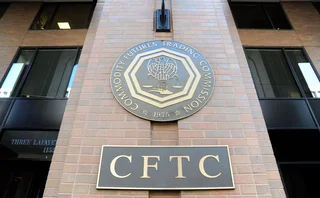Fatca's Endgame

In past columns, I tracked the progress of the Foreign Account Tax Compliance Act (Fatca) regulation from when US regulators first set out on their effort to collect withholding tax from foreign holdings by US entities, through efforts to institute compliance plans.
With the new postponed compliance date of July 1 fast-approaching, the industry is looking at a two-part endgame. The first piece is getting the last parts of guidance from the US Internal Revenue Service on all the details of what Fatca requires, including details of the W-8BEN-E form firms will have to file under the Act. The second part is getting data management technology up and running and ready in time for the looming deadline.
At Inside Reference Data's March 18 breakfast event covering Fatca developments, sponsored by SIX Financial Information, Dax Philbert, global Fatca loans program manager at Deutsche Bank, advanced the idea of a "Fatca hub" that gathers the necessary data and distributes it to different groups within a firm.
Workarounds may be necessary, Philbert said. "Then have a phase two or plan B that will get you the future phase [of a complete Fatca system]," he explained. The global landscape is one that includes markets with stricter privacy regimens, such as Saudi Arabia, Dubai, Hong Kong, Singapore, Luxembourg and some other Middle Eastern and North African markets. The "Fatca hub" concept could be a way to cope with varied levels of privacy rules.
"You have to think systematically about how you address sharing of information, manage the business effectively and also have consistency in your processes," Philbert cautioned.
Before anyone can advance theories on how to structure or change data management operations concerning Fatca filings and information, however, there appear to be a lot of unanswered questions about Fatca requirements—more than just the nature of the "W-8BEN-E" form, said Jon Watts, director and head of banking and securities, Fatca, at Deloitte & Touche, who gave a keynote address at the event.
Numerous intergovernmental agreements (IGAs) between the US and other countries are now in place, but standards bodies, especially in Europe, may emerge to tie together the various IGAs and provide consistency, according to Watts. He sees this development and other uncertainties about Fatca rule information needing three or maybe even five years to achieve that consistency.
Undoubtedly, there will be "a lot of noise" after July 1, said Watts, "because a lot of companies have thought about [Fatca] for a long time but have only just started the process of reaching out to customers." That will also become evident in the need to figure out whether firms need only collect documentation for compliance or remediate their processes completely, as Watts sees it.
Beyond July 1, a February 2015 deadline also must be adhered to, for getting reporting processes and customer remediation set up. What will occur if the IRS or US Treasury should decide that Fatca does not go far enough and other requirements should be added to the purview of Fatca? That could further confuse anyone trying to do their level best to be ready, both on July 1 and for the latter deadline about a year away.
Only users who have a paid subscription or are part of a corporate subscription are able to print or copy content.
To access these options, along with all other subscription benefits, please contact info@waterstechnology.com or view our subscription options here: http://subscriptions.waterstechnology.com/subscribe
You are currently unable to print this content. Please contact info@waterstechnology.com to find out more.
You are currently unable to copy this content. Please contact info@waterstechnology.com to find out more.
Copyright Infopro Digital Limited. All rights reserved.
As outlined in our terms and conditions, https://www.infopro-digital.com/terms-and-conditions/subscriptions/ (point 2.4), printing is limited to a single copy.
If you would like to purchase additional rights please email info@waterstechnology.com
Copyright Infopro Digital Limited. All rights reserved.
You may share this content using our article tools. As outlined in our terms and conditions, https://www.infopro-digital.com/terms-and-conditions/subscriptions/ (clause 2.4), an Authorised User may only make one copy of the materials for their own personal use. You must also comply with the restrictions in clause 2.5.
If you would like to purchase additional rights please email info@waterstechnology.com
More on Regulation
Europe is counting its vendors—and souring on US tech
Under DORA, every financial company with business in the EU must report use of their critical vendors. Deadlines vary, but the message doesn’t: The EU is taking stock of technology dependencies, especially upon US providers.
Regulators can’t dodge DOGE, but can they still get by?
The Waters Wrap: With Trump and DOGE nipping at regulators’ heels, what might become of the CAT, the FDTA, or vendor-operated SEFs?
CFTC takes red pen to swaps rules, but don’t call it a rollback
Lawyers and ex-regs say agency is fine-tuning and clarifying regulations, not eliminating them.
The European T+1 effect on Asia
T+1 is coming in Europe, and Asian firms should assess impacts and begin preparations now, says the DTCC’s Val Wotton.
FCA sets up shop in US, asset managers collab, M&A heats up, and more
The Waters Cooler: Nasdaq and Bruce ATS partner for overnight market data, Osttra gets sold to KKR, and the SEC takes on DOGE in this week’s news roundup.
Waters Wavelength Ep. 312: Jibber-jabber
Tony, Reb, and Nyela talk about tariffs (not really), journalism (sorta), and pop culture (mostly).
Experts say HKEX’s plan for T+1 in 2025 is ‘sensible’
The exchange will continue providing core post-trade processing through CCASS but will engage with market participants on the service’s future as HKEX rolls out new OCP features.
No, no, no, and no: Overnight trading fails in SIP votes
The CTA and UTP operating committees voted yesterday on proposals from US exchanges to expand their trading hours and could not reach unanimous consensus.








